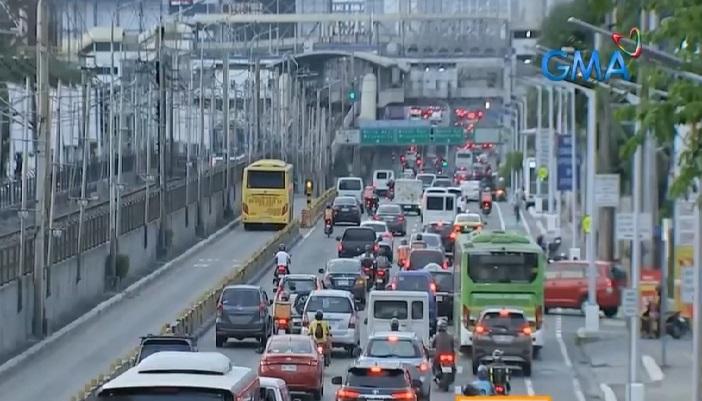MMDA's Nebrija hopes more LGUs adopt the no contact apprehension policy

Metro Manila Development Authority (MMDA) Task Force Special Operations Chief Bong Nebrija hoped that more local government units (LGUs) would implement a No Contact Apprehension Policy (NCAP) to deter motorists from committing traffic violations.
"I hope they will push for that also na magkaroon sila ng no contact apprehension... I hope they will push for that kasi magandang deterrence ito para sa motorista na violate nang violate," Nebrija said during Friday's Kapihan sa Eurotel.
(I hope they would also push for that, to have no contact apprehensions. I hope they will push for that because this would be an effective deterrence against motorists who are repeat violators.)
So far, Nebrija said only four cities in Metro Manila are implementing NCAP - Quezon City, Manila, Valenzuela City, and Paranaque City.
The MMDA official said the implementation of NCAP at the LGU level allows authorities to apprehend motorists who are violating simple moving violations such as beating the red light, crossing the pedestrian lane, and wrong lane while turning.
These are examples of violations that most motorists opt to ignore, he added.
“Minsan ang traffic rules and regulations natin has become an option. Pag may enforcer sundin mo pag wala, okay lang di ba? Eh ngayon with the augmentation ng no contact apprehension e nakikita na natin na marami talaga sa ating mga kababayan e nagva-violate,” he said.
(Sometimes, our traffic rules and regulations have become optional. If there is an enforcer around, it's followed. If there isn't one around, who cares, right? But now, with the augmentation of no contact apprehension, we can see that a lot of our citizens are violators.)
With the new policy being implemented, Nebrija said there will always be “birth pains” like problems in information dissemination, including the proper communication of protocols that are being implemented by the LGUs.
“But then again, once all these settle down, ma-appreciate pa ng ating mga kababayan kasi all of this is for the safety of everyone, of all road users,” he said.
(But then again, once all these settle down, our citizens will even appreciate this because all of this is for the safety of everyone, of all road users.)
Furthermore, Nebrija said MMDA was moving towards the use of artificial intelligence (AI) in the implementation of NCAP as they only apprehend 25% to 30% of traffic violators.
Under the current set-up, Nebrija said they hired deaf and mute individuals to manually monitor the footage captured by the cameras.
“Maybe the apprehension rate that we have is mga 25 percent to 30 percent lang. Marami pa rin ang nakakalusot,” he said.
(Maybe the apprehension rate that we have is only around 25 percent to 30 percent. A lot of people get away with it.)
“Pag nag-transition na tayo sa artificial intelligence, automatic na po ‘yan ‘yung mga camera na mismo, auto-generating na po ‘yan nakikita na po nila ‘yung mga violation and they will even be the one to print out the summon,” he added.
(When we transition to artificial intelligence, it will all be automatic. The cameras themselves will be auto-generating. They will see the violations and they will even be the ones to print out the summons.)
Meanwhile, Nebrija supported the modifications to the NCAP rules for public utility vehicles as the operators are shouldering the fines of the traffic violations which should be charged to the PUV drivers.
“I agree with the complaints ng mga public utility operators natin--bus, jeepney... Minsan pinaalis niya na yung driver niya, wala na yung driver, umalis na, nag-resign na, e sa kanya pa rin babalik yung ticket so sila nagbabayad,” he said.
(I agree with the complaints of our public utility operators, bus, jeepney... Sometimes they've fired their driver, the driver no longer works there, they've left, resigned. But the traffic ticket is addressed to the operator and they end up paying the fine.) — DVM, GMA News




